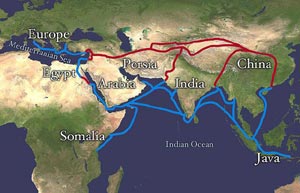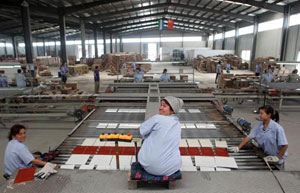Anchored to a vision
By Alfred Romann in Macao for China Daily (China Daily) Updated: 2014-11-09 08:40Ip, a well-known industry figure, says three things are needed in the Asia-Pacific region to ensure constant and sustainable levels of growth.
The first is a new focus on tourism infrastructure, including simplifying visa processes as much as possible and speeding up immigration controls at airports, reliable public transport and a safe environment for business.
 |
 |
The third is more large-scale tourism events. Singapore and Dubai are success stories that could be emulated, he said.
While the growth of the Asia-Pacific tourism industry remains impressive, it is still driven in large part by ongoing economic growth in the region and the emergence of a consumer class with the disposable income to travel further and more often.
A key focus for many at the forum was to ensure sustainable growth - sustainable in terms of both business and the environment.
And while tourist destinations in the region require better infrastructure to attract more international tourists from Europe, North America, Latin America and Africa, destinations abroad may also need to step up the services they provide to Asian tourists.
Global Blue is moving forward on this front. Last year it introduced Alipay, China's largest e-payment provider, in Europe to facilitate transactions for Chinese travelers. The growth, said Baxby, has been impressive.
More such services are needed, said Wang Ping, chairman of the China Chamber of Tourism. She said the number of Chinese tourists is certainly on the rise but so is the number that comes back to China unhappy with their experiences, due to the lack of services in Mandarin or poor communication with hosts.
And the growth of Chinese outbound tourism is creating another concern for the CCT. On average, Chinese tourists spend abroad three times as much as inbound tourists spend in China.
"This means we are not preparing enough for foreign tourists coming into China. That is why foreign tourists are not spending enough when they come," Wang said. "We need to pay attention to the problem of trade deficit."
"I hope for the MSR we can have new facilities and hotels," Wang said, adding, "I hope everyone can work together to build the MSR and have a very close alliance."
If trends continue, more than 100 million tourists will make a trip out of China this year and will be part of more than a billion international travelers globally.
In the next decade, tourism and related industries could create some 70 million jobs - two-thirds of them in Asia - and "be a force for good in international relations", said Michael Frenzel, chairman of the World Travel and Tourism Council.
Agreement on this point at the forum was widespread, but so was the understanding that the global tourism industry and its hundreds of thousands of stakeholders, from hostel operators to government leaders, need to pay more attention to sustainable growth - not just sustainable in terms of the environment, but also in terms of economics.
- Cash crunch fans expectation on RRR cut
- US extends antidumping duties on China's thermal paper
- Modern food van with ancient look in Shanghai
- China home prices continue to cool in November
- Asia's top 3 billionaires all Chinese
- Old investment remedy the treatment for China's "new normal"
- China's solar sector opposes US anti-dumping ruling
- BMW to recall 846 cars in China
















